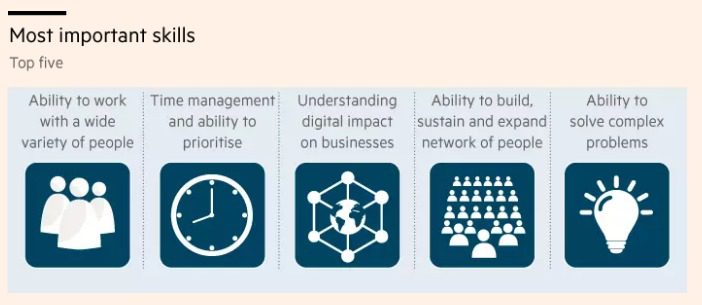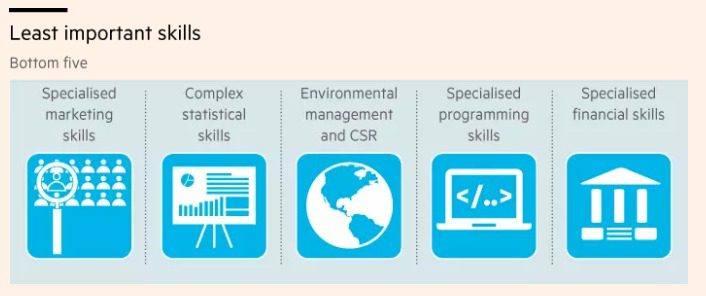Fox Temple EMBA Jumps in New Financial Times Ranking

When it comes to MBA rankings, the Temple University Fox School of Business is usually remarked for its highly-praised Online MBA. But focusing solely on the business school’s remarkable digital offering overlooks its increasingly well-regarded executive business program.
Last month, the school earned an immense boost in the Financial Times 2017 Executive MBA program rankings, climbing up to 56th from 73rd overall last year—the highest spot in the school’s history. The annual list is typically dominated by joint EMBA programs, such as the Northwestern University Kellogg School of Management and School of Business and Management of The Hong Kong University of Science and Technology’s Kellogg-HKUST EMBA program, which came in 1st overall. In fact, only one non-joint EMBA—the Oxford Saïd School of Business’ EMBA—made it into the top 10.
The Fox School of Business EMBA program came in 10th overall among U.S.-only programs on the new list, as well as 7th among northeastern EMBA programs, and 2nd overall among business schools in Pennsylvania. FT praised the program in particular for it’s “global immersion experience” (ranked 3rd in the U.S.) and for progress students make three years after graduation (ranked 4th globally).
In a press release, Fox School of Business Dean Dr. M. Moshe Porat said, “These latest rankings from Financial Times are indicative of our program’s growing reputation, strength, and return on investment.”
“Further, global immersions and our worldwide partnerships afford students the opportunity to gain global business savvy and study internationally, all through an immersive learning experience,” he continues. “These details continue to set apart our program.”

The Fox School of Business at Temple University.
Michael J. Rivera, Ph.D., Associate Professor of Strategy and Entrepreneurship and Fox EMBA Academic Director, recently spoke on the why the school has seen its ranking ascension, saying, “It is not easy to boil the reason for Fox’s rise in the EMBA Financial times rankings to just one principle, but if I did, I would have to say that it is our commitment to continuous improvement across all areas of our programs.”
On the recent evolution of the program, fueling its incredible rise in the rankings, Rivera remarks, “Over the past three years, we’ve overhauled our program entirely. Repositioned with a strong understanding of the market, we strive to understand the value our students need us to deliver and be curricularly relevant in the eyes of industry.”
Like many of the world’s top-rated programs, the global experience factor of the Fox EMBA heavily contributes to its overall quality. Rivera, who teaches his Creativity, Entrepreneurial Thinking and Innovation Strategy course in multiple international locations, adds, “The Fox EMBA program has numerous campuses globally where we offer our program – Bogota, Lima, Paris, Casablanca, Shanghai, and Tokyo. Stopping at these various campuses is helpful because it keeps me connected with the students and gives me an opportunity to observe the various programs in action. The on the ground insight supports our ability to be aligned and work as a team, even though we are physically in different locations around the world.”
Breaking Down the Benefits
The 48 credit program’s benefits for students is fairly self-explanatory. Fox EMBA graduates earn an eye-popping $156,426 annual salary three years after graduation, as well as a $26,000 bonus increase by the end of the program.
For a business school that may not be casually grouped with Ivy League competition, Rivera believes the success of the EMBA and its graduates comes from the school “punching above its own weight.” This is possible, he says, “because of our dean who is truly entrepreneurial and innovative. His leadership has empowered people to drive change and doesn’t set boundaries on what is possible.”
The FT ranking notes that Fox EMBA grads have seen financial benefit increases across the board, from salary jumps and promotions (4th best among qualified EMBA programs), as well as increases in female and international board members.
Fox EMBA applicants typically join the program with 10 to 15 years of experience, with a limit of 90 students per academic year (45 per cohort). The program can be completed in as little as 16 months and a GMAT waiver is available for select applicants.
For more information on the Fox EMBA, click here.
What Are The Differences Between The World’s Best Online MBA Programs?

Every year, the online MBA becomes an increasingly more attractive option for business school students. With the flexibility to pursue your degree at your own pace and the chance to choose the best MBA program for you without considering location, prospective MBAs can truly make the most of their degree. And though some may be worried about missing out on a traditional classroom experience and the community that comes with it, changing educational technology has made it easier than ever for students to play an important part in their school’s community—without getting out of your pajamas.
The new MetroMBA Online Metro has rounded up some of the best online MBA programs available to students. To help determine which program fits your needs, we take a look at what sets each program apart—and what might just make it the perfect MBA for you.
Fox School of Business — Temple University
The Online MBA Program at Temple University’s Fox School of Business has the distinction of being ranked as the best online MBA in the country, and the best online MBA for veterans, according to U.S. News & World Report. The Online MBA at Fox offers total flexibility for students, with the opportunity to complete the degree within anywhere from 20 months to six years. To help students feel connected with the Fox community, the program offers weekly live web conferencing sessions allowing students to stay connected to faculty and classmates, as well as providing one-and-one career coaching.
The Online MBA at Fox is structured around three required courses that help prepare students for the program, 36 credits that can be completed at the student’s own pace, and a final consulting capstone course that offers total business immersion. The Fox MBA has also been recognized for its benefits for frequent travelers or military members. About 17 percent of students in the most recent class had some form of military experience.
The Fox Online MBA offers a number of areas of study, ranging from HR Management, International Business, Real Estate, Statistical Science, and much more. After completing the program, students on average saw a $30,000-plus salary increase and a median salary of $105,000 three years after graduation.
Hough Graduate School of Business — University of Florida
Although online MBAs tend to be on the rise in recent years, the Hough Graduate School of Business was one of the first business schools to offer a fully accredited online degree—almost twenty years ago. Today, the Financial Times and U.S. News & World Report consistently rank the Hough Online MBA among the top programs in the country.
The Hough Online MBA is the perfect opportunity for students that travel extensively, may move while pursuing their degree, or have a number of weekend commitments. To ensure that students still get face-to-face time with the school’s faculty and classmates, students return to campus once every four months for periodic residencies, allowing them to stay in touch with the community.
The online degree at Hough can be completed in either a two-year or one-year format. Both degrees give students the chance to choose among four areas of focus for their degree: entrepreneurship, finance, marketing, and international. The Hough Online MBA may also be perfect for students looking to immerse themselves in a global business education, as it offers students the chance at a Global Immersion Experience. Students have recently traveled to areas such as Argentina, United Arab Emirates, China, and Ireland.
Kelley School of Business — Indiana University
The Online MBA at the Indiana University Kelley School of Business is made up of 51 credit hours, 39 of which are required courses. The remaining credits can be used towards electives that will help students narrow the focus of their degree in an area such as Business law and ethics, economics, marketing, project management, operations, and more.
Each quarter, Kelley also offers an AGILE course—Accelerating Global Immersion Leadership Education—which frequently partner with top business schools around the globe. Students have recently traveled to such areas as India, Myanmar, South Africa, Botswana and Brazil.
The Kelley Online MBA also stands out because it offers students the chance to earn a dual degree online, pairing their MBA with an online MS in Business Analytics, Global Supply Chain Management, Marketing, Strategic Management, or Entrepreneurship & Innovation.
CHECK THIS OUT: No GMAT, No Problem
Kenan-Flagler Business School — University of North Carolina
The Online MBA at the UNC Kenan-Flagler Business School, better known as the MBA@UNC, may take students anywhere from 18 to 36 months to complete and include nine core courses in foundational business fields, such as economics, introductory finance, business strategy, operations management, and more. Students may also choose from over 30 electives to focus their degree in a particular concentration such as entrepreneurship or management consulting.
The MBA@UNC also requires students to complete two in-person immersions, which may be completed domestically or—for students interested in global business—internationally. Through the Student Teams Achieving Results (STAR) and Doing Business In (DBI) program, students also have the chance to study abroad at an MBA exchange partner school.
The MBA@UNC stands out thanks to its many post-graduate resources thanks to the Career & Leadership team. Replacing traditional on-campus recruiting, a Virtual Company Information Sessions allow executives from a variety of industries throughout the country to communicate with students about the hiring needs of their companies. Alumni can access these resources at any point after their graduation and can also take additional MBA courses as needed for their career development.
Tepper School of Business — Carnegie Mellon University
Carnegie Mellon’s Tepper School of Business offers students a flexible online degree that is completed through a combination of online and on-site experiences throughout a 32 month period. Each week, students will have access to a 70-minute online course that allows them to virtually interact in real time. Throughout the year, they will also be required to attend six “Access Weekends,” held at the university’s various locations throughout the country. The Tepper Online MBA may be the program that provides the most opportunities for in-person contact with classmates and faculty, so students that are interested in more face time as part of their online program may be particularly interested in this degree.
Tepper students are provided with in-depth career coaching and recruitment opportunities. Students will also visit a number of major companies in the country, such as Google, Amazon, JP Morgan, and Microsoft. Within just three months of graduation, roughly 91 percent of students in the Tepper Online MBA program were offered a full-time role.
W.P. Carey School of Business — Arizona State University
The Arizona State University’s Carey School of Business online MBA degree is structured around just one course at a time, each five weeks long. Students are immersed in an inclusive online environment that allows them to interact with classmates through case-based projects.
Carey, in comparison to several other schools noted on this list, is also unique in its option of pursuing a concurrent online degree, such as a Master of Legal Studies, MSE in Electrical Engineering, or MS in Industrial Engineering.
What Makes an EMBA Worth It? Students, Alumni Share Their Thoughts

In an interview with the Financial Times, five EMBA students and alumni spoke about the most important lessons they learned during their time in school. They covered a variety of topics including how the alumni network has helped them, the advice they would give to a new EMBA student, and what they learned from their classmates. In this article, we’ll provide a brief overview of a few of the most valuable tips.
Cultivate Your Global Network
For Idara Umoh Nickelson, an ’17 EMBA graduate at Northwestern’s Kellogg School of Management, the main opportunity she seized was to cultivate the global network that she was exposed to. This network, which spanned five campuses and four countries (United States, Canada, Germany, and Hong Kong), provided her with a range of valuable advice including “don’t feel guilty about the time you will spend on yourself.” This advice helped her learn to take advantage of every opportunity during her schooling, which helped her land a job in healthcare—her passion.
Use Your EMBA to Your Advantage
Casey Worthington, an ’19 EMBA student at Cornell Johnson, had a busy role in IT as a consulting-based project and program manager. It was a challenging position, but he wanted more; in particular, he wanted to move into a business leadership role. The EMBA allowed him to head in that direction while still balancing his family life and work. Post-enrollment, he accepted a dream job, and to Worthington, it was the EMBA that gave him the advantage.
Tailor Your Journey
There’s a lot of different advice that Blair Wood, an ’18 EMBA student at the London Business School, would give to aspiring students, but his main advice is to tailor your EMBA to your journey. “Be guided but not overly influenced by others . . . there is a relatively narrow window to maximize a valuable and rare chance for personal growth,” he told the Financial Times. “You need to explore the vast array of opportunities, find the blend that suits you and do things at your pace.”
Learn About Other Perspectives
For Krystal Bojan, an ’18 EMBA student at Columbia Business School, London Business School, and the University of Hong Kong, her experience has been about learning from a variety of different cultures and nationalities. Having an immersive educational experience around the world, Bojan has had to learn how different locations have different styles of communicating, problem-solving, and influencing. For example, she told the Financial Times: “Working for western multinationals where the culture was non-hierarchical, I was accustomed to approaching people directly to get things done. In Asia, it is strongly driven by carefully cultivated relationships and networks of influence, or ‘guanxi’.”
To read additional advice from each EMBA student or alumni and to see what an EMBA alumni from Melbourne Business School had to say, read the full article in the Financial Times.
What Employers Do and Don’t Look for In An MBA Graduate

Earning an MBA can often be a huge boost for graduates entering the job market, from opportunities for upper-level management roles to increased salaries.
But securing that job post-graduation can still be an uphill climb. Even with an MBA, students often find themselves struggling to understand how they fit within a changing job market. As the market continues to shift, understanding exactly what employers are looking for in their MBA applicants—and what they aren’t looking for—can be crucial for graduates as they search for and apply for their perfect job.
Thankfully, a recent survey from the Financial Times looked at the job market from the perspective of employers: what they are in need of in terms of MBA job seekers, and how MBA applicants can be more realistic regarding for the roles for which their new degree will qualify them. Unfortunately for many MBAs, the survey results may come as a surprise when they reflect on what skills they hoped their degree would offer in the first place. Yet, a critical understanding of what employers are and aren’t looking for can help job seekers re-frame the way they understand themselves and their prospective careers.
What Employers Want
The survey looked into the most important skills that employers look for in new MBA talent. Perhaps surprisingly, the five most important skills determined by the survey were actually not core MBA subjects. “Soft skills,” such as the ability to prioritize (desired by 72 percent of employers), the ability to work with a variety of people (76 percent of employers), and the ability for employees to effectively manage their time were the most desired and difficult to find, according to the survey.
The most difficult skills to recruit—the skills companies are sorely in need of—were most commonly named as the ability to use social media for the business’ needs, financial forecasting, big data analysis, brand storytelling skills, and the ability to train others.

The five most important skills, according to the Financial Times survey.
What Employers Don’t Want
The least important skills for an MBA, according to the survey, were those most often thought of as “hard skills,” such as specialized skills in marketing, finance, programming, or complex statistical skills. Similar skills were mentioned as the least difficult skills to recruit—the ability to solve complex problems and specialized marketing skills are often seen as common fare among MBA graduates and therefore a candidate with such skills won’t necessarily stick out.
Many surveyed employers said that past experience with MBA-holding employees had left them disappointed, with the degree-holder having difficulty turning concepts into practice. Many employers said that, while an MBA degree may be a nice bonus for a job candidate, the overall hiring decision is more based on the individual’s industry qualifications, rather than their degree.

These skills may be less necessary than MBA grads anticipate.
What Do You Need To Do?
So far, the results of the Financial Times survey may be disappointing for MBAs who have worked hard for their business education. No need to get concerned just yet, however. The employer response may have less to do with the idea that the skills of an MBA grad aren’t necessary in a company and more to do with a perception gap; the belief that business schools will not teach students the skills they need, and therefore that they do not need MBAs at their company.
Most of the work in convincing a skeptical employer your degree is worthwhile is simply convincing them that the skills learned as part of your degree are the same ones they desire. Many business schools are attempting to change the way MBAs are perceived and the type of skills that are associated with graduates. Julie Morton, Associate Dean of Careers Services and Corporate Relations at Chicago’s Booth School of Business, has already set half of her team to the work of promoting the value of MBA-holders in the workforce. Overall, much of the work will fall on business schools to market their graduates as holding the skills most desired by recruiters.
On a more individual level, however, the survey results also indicate that MBA grads can be more judicious in the roles that they apply to and the way they market themselves to potential employers. By focusing on the skills desired most—and the hardest to recruit—and ensuring that employers know these are the exact skills an MBA education offers, both employer and employee can benefit.
Metro Jobs Report: Startup Experts, a De-Globalized World and more

Lets dig into the latest jobs news …
6 UK Business Schools Ranked Top in Executive Education by FT

Executive education and MBA programs typically go hand-in-hand. In most cases, the same professors teach the courses, and the curriculum tends to overlap, though in most cases MBA courses go into far more depth. However, because they can be so closely linked, a highly-ranked executive education program is a good indicator of the quality of the business school. That’s why it’s important to note that six UK business schools made it onto the top 50 list of the 2017 Financial Times Executive Education ranking. Continue reading…
